Where do you find community as a Black student in U of T Engineering?

Genevieve Aguigwo
Year 2 MechE, Vice President, NSBE, U of T Chapter
I find community in the clubs and organizations that I am a part of, my study groups and at the events that I attend that are BIPOC-focused. These include the Faculty’s Equity, Diversity and Inclusion (EDI) Hub, the National Society of Black Engineers (NSBE), and Engineering Outreach’s Blueprint Program. I’ve met all my closest university friends through NSBE.
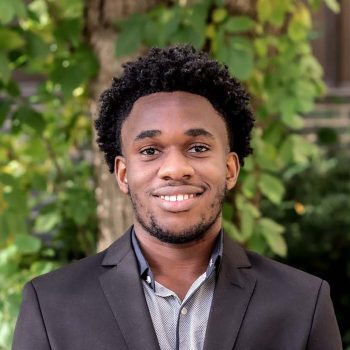
Chetachi Ugwu-Ojobe
Year 3 EngSci, President, NSBE, U of T Chapter
I find community in groups of people that display many of the same interests I do. I am a Black student in engineering who loves to play soccer. My interests led me to join the National Society of Black Engineers, the University of Toronto Aerospace Team, and the Skule™ Soccer Team.
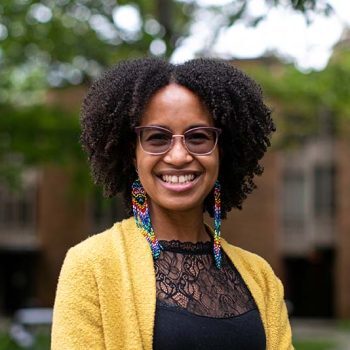
D'Andre Wilson-Ihejirika
ChemE MASc 1T2, ChemE/ISTEP PhD candidate
Mikhail Burke (Dean's Advisor on Black Inclusivity Initiatives) is amazing at creating a safe space for Black students and has been a huge part of me building a sense of belonging in my PhD program. I am also starting to build a community with other Engineering Education PhD students. It is nice that we have a couple other Black students in the program that I have been able to connect with.
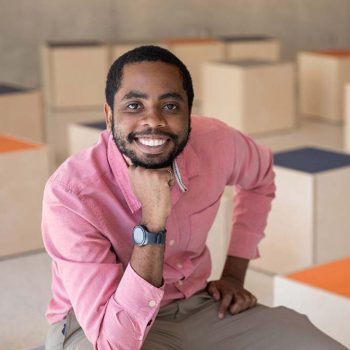
Mikhail Burke
MSE 1T2, BME PhD 1T8, Dean's Advisor on Black Inclusivity Initiatives
In my first years of undergrad, I found community outside of Skule™. But student groups like NSBE were important in helping me build connections within Engineering and led me to value building pathways and communities for young people who may consider studying engineering through outreach initiatives like ENGage.
What do you do to stay connected to your communities during times we've been remote?
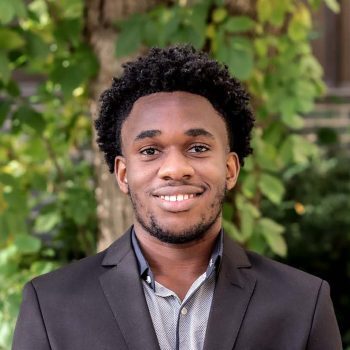
Chetachi Ugwu-Ojobe
Year 3 EngSci, President, NSBE, U of T Chapter
We have to put effort into maintaining connections to our communities. We can no longer have meetings in person or see each other in the hallway on the way to class. So, to stay connected to my communities, I put in the effort to maintain them. That could be sending out check-in messages to people or calling them to catch up or, when safe to do so, going out for lunch.
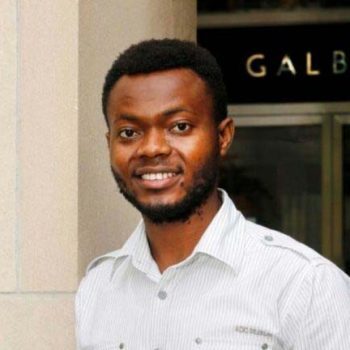
Ibrahim Ogunsanya
Assistant Professor, CivMin
I have seen an increase in networking events for Black communities across Ontario. Being remote did not change that. We have been able to connect through activities such as movie nights, dance lessons, stage plays, technical presentations, museum visits, etc. Being remote has allowed us to watch Netflix while on Zoom, so we can see and feel each other's reaction and presence.
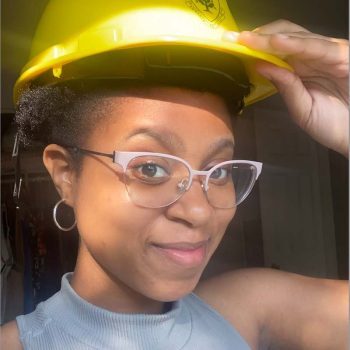
Gabrielle Jean-Pierre
Year 1 EngSci
NSBE has been reaching out to Black 2T5s and we started a group chat to get acquainted with each other. But I also stay connected to my communities by reaching out to my friends outside of school. It reminds me that there's still life outside of Engineering, which is weird to say because it's obvious, but forgetting is inevitable when you're in this program.
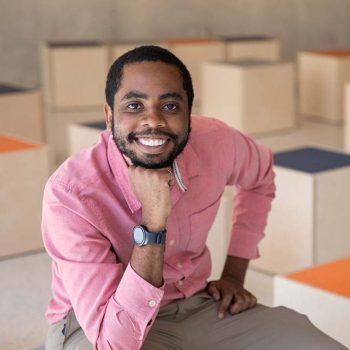
Mikhail Burke
MSE 1T2, BME PhD 1T8, Dean's Advisor on Black Inclusivity Initiatives
COVID-19 has been both a curse and a blessing when it comes maintaining community ‘in isolation.’ On the one hand, I miss the unique elements of in-person connections. But online communities have allowed for easier engagement. People who might not be able to leave the lab for an in-person gathering can now engage. We now have a place where we can gather all our resources and interact together in real time.
What advice would you give to someone looking for belonging at U of T Engineering?
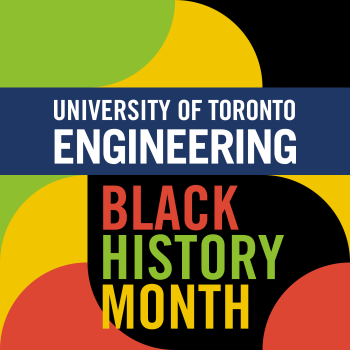
Anonymous student
Year 2 ChemE
I don’t feel like I really belong because I don’t spend much time with my peers outside of the classroom. I go home and study and work on assignments. So, my advice is: try to create a healthy balance between schoolwork and your social life. You can only feel a sense of belonging with a group of people if you create the opportunities to get to know them and see if you share the same values.
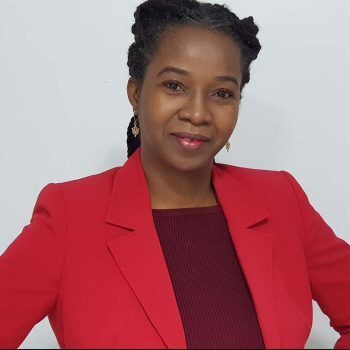
Anuli Ndubuisi
PhD Candidate, Research Assistant, InVEST
Keep exploring your options and ask others for referrals. Earlier in my program, I had reached out to a community club through email, but I got no response and that was discouraging.
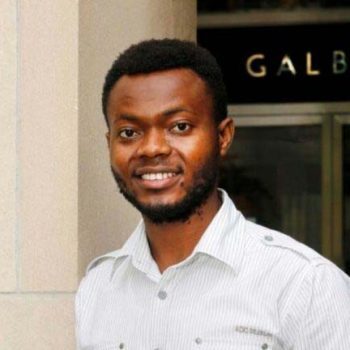
Ibrahim Ogunsanya
Assistant Professor, CivMin
Reach out! Your struggle to belong, or other feelings you're struggling with, has been experienced by many. U of T Engineering has created societies and resources to help you cope better. The University website offers a lot of resources to help. There is no need to go through it alone, we're here to help!
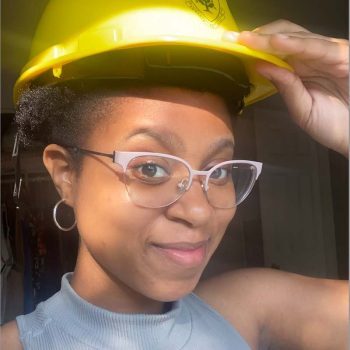
Gabrielle Jean-Pierre
Year 1 EngSci
No matter the number of times your peers will tell you that you belong, if you don't believe it yourself, their words will be faint compared to the louder, more negative voice in your head. Take a chance and trust that you belong here. Once you take that leap of faith, you’ll realize the truth in it, just as I'm realizing now.
Where do you see opportunities for change at U of T Engineering?
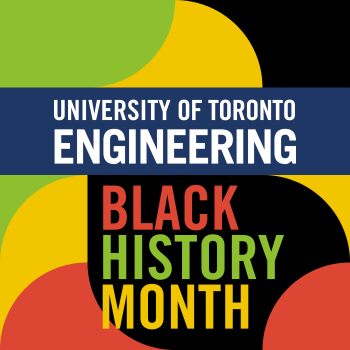
Anonymous student
Year 2 ECE
We need more outreach to Black communities. It's not that Black people don’t want to study engineering, there are barriers for many of them. I would also like to see more support of NSBE to make it easier for us to bring the Black community together, whether it’s with activities during orientation, or helping us identify Black first-year engineering students so we can reach out to them and create a network larger than what we can do through word-of-mouth and referrals.
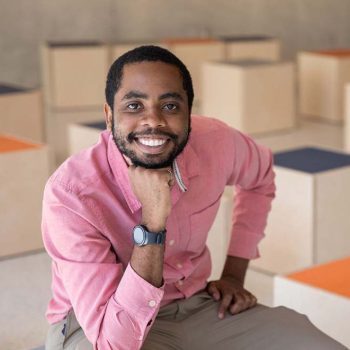
Mikhail Burke
MSE 1T2, BME PhD 1T8, Dean's Advisor on Black Inclusivity Initiatives
U of T Engineering has been doing great work to more explicitly address equity-deserving groups, facilitate Black inclusivity and leverage an EDI lens in Faculty discourse and considerations. But there are always opportunities for more change and growth, including increased community-based scholarships, greater recognition and support for the inclusive pedagogical practice in our classrooms, and more support for non-research-focused personal/professional development of our graduate students.

Genevieve Aguigwo
Year 2 MechE, Vice President, NSBE, U of T Chapter
There is a need for Equity, Diversity and Inclusion initiatives to be aware of the existence of each other, and for the leaders of these groups to connect so we could work together to amplify our efforts. There is a larger divide between the postgraduate and undergraduate community, and a lot of work needs to be done for both levels to interact with each other because there are benefits to that interaction especially around mentorship and increasing the pursuit of postgraduate education.
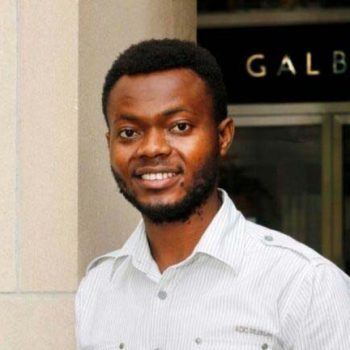
Ibrahim Ogunsanya
Assistant Professor, CivMin
The change I think we would all like to see is steadily happening. Initiatives such as celebrating Black and Indigenous history month, creating graduate funding for Black and Indigenous fellows, the creation of an anti-Black racism task force at U of T, awareness and funding for women in engineering and several other initiatives that promote EDI. We still have a long way to go, but many of us are happy to see the progress happening now.
What message do you have for a Black person considering a career in STEM or higher education spaces?
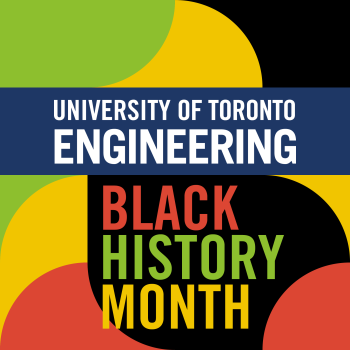
Anonymous student
Year 2 ECE
Do it. We exist even though you might not see us every day. The more people that take that leap, the more representation we will have, and the more people will be willing to take the same leap. You are more than capable of excelling in the field. You just have to believe it.

Genevieve Aguigwo
Year 2 MechE, Vice President, NSBE, U of T Chapter
Go for it. What high school teaches you about STEM or the possibility of a career in STEM is very baseline. There is so much you can do in STEM. There is nothing wrong with starting general and then working toward a direct path throughout your post-secondary education. Also, not being great at math will not determine your success in STEM — instead it's the passion for the topics you are studying that will.
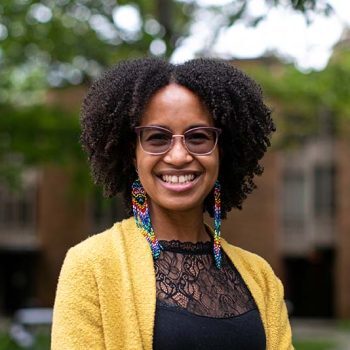
D'Andre Wilson-Ihejirika
ChemE MASc 1T3, ChemE/ISTEP PhD candidate
There are so many opportunities out there to make an impact through STEM, as well as in academia. If this is something you are interested in and passionate about you should go for it, and there are people here that will support you! Sometimes you will be the only Black person in the room, but I was recently at a talk where the speaker said to ‘own being the only.' It is an opportunity for you to bring a new perspective and to make space for others coming after you. I am happy to help make that space for others too.
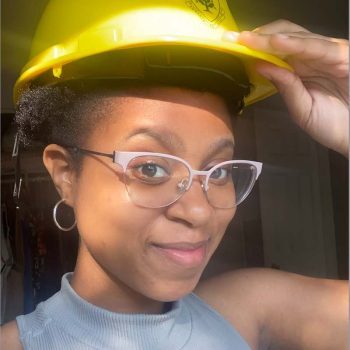
Gabrielle Jean-Pierre
Year 1 EngSci
When my dad asked me why I want to study engineering, I said, ‘Because there aren't many Black people in engineering.’ He stopped me and said, ‘That can't be why. Remember that you're a person before you're a Black person. Don't do it for the community. Do it for yourself.’ So that's the advice I'd give any Black person considering a career in STEM or higher education spaces. You deserve to pursue your passion as much as anyone else.
